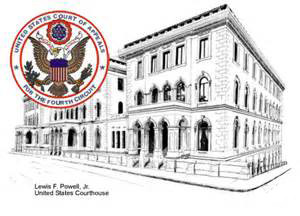This week:
The Johnson Retroactivity Plot Thickens…
Fourth Circuit Sets Oral Argument On Johnson Retroactivity Case
Obama Grants Clemency To Another 95, But His Record Remains Disappointing
Justice Shorts
Advocate For Criminal Justice Reform Says Congress To Vote On Sentencing Reform Early Next Year
The Johnson Retroactivity Plot Thickens…
 Even while Johnson v. United States retroactivity cases work their way through Courts of Appeal, the Supreme Court already has received three cases addressing whether people already sentenced under the Armed Career Criminal Act (18 U.S.C. § 924(e)) can undo their sentences based on last June’s Johnson decision. The two cases still pending at the high court argue that Johnson both (1) is a “substantive” change in criminal law (and therefore retroactively enforceable by federal prisoners filing their initial claims for collateral post-conviction relief); and (2) has been “made retroactive” by the Supreme Court (and can therefore provide the basis for a second-or-successive application for collateral post-conviction relief).
Even while Johnson v. United States retroactivity cases work their way through Courts of Appeal, the Supreme Court already has received three cases addressing whether people already sentenced under the Armed Career Criminal Act (18 U.S.C. § 924(e)) can undo their sentences based on last June’s Johnson decision. The two cases still pending at the high court argue that Johnson both (1) is a “substantive” change in criminal law (and therefore retroactively enforceable by federal prisoners filing their initial claims for collateral post-conviction relief); and (2) has been “made retroactive” by the Supreme Court (and can therefore provide the basis for a second-or-successive application for collateral post-conviction relief).
The cases got to the high court so quickly because, unlike certiorari, they are original petitions for habeas corpus. The cases are In re Butler, No. 15-578 (filed Nov. 3, 2015); In re Triplett, No. 15-626 (filed Nov. 10, 2015); and In re Sharp, No. 15-646 (filed Nov. 16, 2015). Petitioner Triplett also asked for a writ of mandamus directing lower courts to treat Johnson as retroactive.
The Supreme Court ordered the Solicitor General to respond to the petitions, an unusual step in an extraordinary writ case. The Solicitor General filed his responses last week.
Despite the filings, the Government has not yet revealed its position on retroactivity. In Butler, the Government agreed the petitioner was entitled to release for a non-Johnson reason, thus making his case moot. The Supreme Court dismissed Butler’s petition last Monday. The Government opposed Triplett’s petition, arguing that it was not clear that the Johnson decision will make a difference in his case – that is, even without the residual clause, he might have gotten the same sentence. In effect, the government is saying Triplett isn’t a great vehicle for resolving the Johnson question.
Last Wednesday, the Solicitor General filed an opposition to inmate Sharp’s petition. Once again, the Government did not argue that against Johnson retroactivity. Instead, it contended that Sharp should file a pre-judgment petition for writ of certiorari, because “exceptional circumstances [do not] exist that warrant the exercise of habeas jurisdiction.”
If the Supreme Court is going to rule on Johnson retroactivity before the June deadline for prisoners to file for Johnson relief, Court followers generally agree that the Court has to accept a petition by January 15. Thus, the clock is fast running out for the Supreme Court to issue a decision on retroactivity in time for virtually all of the prisoners who would benefit from such a ruling to take advantage of it.
In re Butler, Case No. 15-578 (filed Nov. 3, 2015); In re Triplett, Case No. 15-626 (filed Nov. 10, 2015); In re Sharp, No. 15-646 (filed Nov. 16, 2015)
OBAMA GRANTS CLEMENCY TO 95 PRISONERS, BUT HIS RECORD REMAINS DISAPPOINTING

The Obama Administration swept into office seven years with an ambitious clemency plan. Then nothing happened. For the first few years of the Obama presidency, the Chief Executive’s penuriousness with pardons and clemencies made prior presidents seem like Santa Claus by comparison. Now, with a late-term flurry of pardons and commutations last Friday, the President is trumpeting his achievements.
The bad news is that the President has commuted the sentences of only about 1 percent of those eligible. The good news is that the White House is saying that the President has pledged to issue more pardons and commutations in 2016, through a clemency initiative intended to correct what he sees as an injustice in sentencing laws passed during the “war on drugs” of the 1980s and ’90s. Of Friday’s commutations, at least 24 were for dealing crack cocaine. Eight were for marijuana.
The President hasn’t had to do any time himself, or he wouldn’t be so self-satisfied. Despite the Administration’s predictions of reform back in 2009, it was only in 2014 – when the fiscal and human costs of protracted incarceration were becoming a bipartisan political cause – that the President finally decided to tinker with the system. The result is one of the oddest workarounds in the recent annals of bureaucracy: Clemency Project 2014.
Under CP14, five outside interest groups – the American Bar Association, the American Civil Liberties Union, the National Association of Criminal Defense Lawyers, the Federal Defenders and Families Against Mandatory Minimums – were enlisted to speed the processing of clemency requests. They mobilized 4,000 volunteer lawyers and law students to help inmates prepare applications for reduced sentences. Those cases that made it through CP14 would then presumably be steered into an express lane at the Justice Department and be on their way to the president’s desk.
Applicants to CP14 had to have been sentenced to at least ten years for crimes that, under today’s guidelines, would bring significantly shorter sentences. They had to have no connections to drug cartels, gangs or organized crime, and no history of violence. They had to have an unblemished record of good behavior in prison. Even with those stringent tests, CP14 received over 33,000 applications, according to Cynthia Roseberry, a veteran Georgia defense attorney who serves as project manager of CP14. Of those, 18,660 were screened out as unqualified, but the other 14,000-plus are plugged up in the system.
 As of now, the number who have been approved by the CP14 steering committee and sent to the pardon attorney in the Justice Department numbered only 224 of the 14,000 who met the stringent eligibility requirements. With the announcement last Friday that he was granting clemency to 95 of those 99 inmates, President Obama has now commuted 174 sentences, almost most of them having reached his desk without benefit of CP14.
As of now, the number who have been approved by the CP14 steering committee and sent to the pardon attorney in the Justice Department numbered only 224 of the 14,000 who met the stringent eligibility requirements. With the announcement last Friday that he was granting clemency to 95 of those 99 inmates, President Obama has now commuted 174 sentences, almost most of them having reached his desk without benefit of CP14.
The problem is that after navigating the multi-stage process of CP14, applicants still have to pass through the Department of Justice, where the reviewers’ main job is to lock people up, not let people out. David Patton, head of the Federal Defenders of New York, said, “Between prosecutors and defenders, there is ‘a difference in role and perspective’.” Prosecutors are “less able to see things through the eyes of our clients, or through the eyes of anyone other than the prosecutor. In some sense, by recommending that a sentence be reduced you are taking a position that is, in all likelihood, contrary to what DOJ took at the sentencing proceeding,” he said.
An excellent analysis of the state of clemency appeared in “The Bureaucracy of Mercy,” published online by The Marshall Plan, Dec. 14, 2015.
FOURTH CIRCUIT SETS ORAL ARGUMENT ON JOHNSON RETROACTIVITY CASE
 The United States Court of Appeals will hear oral arguments at the end of next month on whether Johnson v. United States retroactively applies to cases on collateral review.
The United States Court of Appeals will hear oral arguments at the end of next month on whether Johnson v. United States retroactively applies to cases on collateral review.
The prisoner in the case has asked for leave to file a second and successive Sec. 2255 motion to undo his Armed Career Criminal Act sentence, on the grounds that last summer’s Johnson decision announced “a new rule of constitutional law, made retroactive to cases on collateral review by the Supreme Court, that was not previously available” pursuant to 28 U.S.C. Sec. 2255(h)(2).
If the Court decides that Johnson is retroactive, people seeking to challenge their ACCA convictions based on Johnson will only have until late June 2016 to file their motions. Of course, there’s a risk that the Court will not rule by then, but that won’t excuse people from filing within the one-year window set by Sec. 2255(f)(3).
In re Creadell Hubbard, Case No. 15-276 (4th Cir.) (read Hubbard’s brief here)
JUSTICE SHORTS
DON’T YOU WISH THIS GUY HAD BEEN YOUR LAWYER?
 There is hardly an inmate out there who doesn’t wish his or her lawyer had been a little more aggressive, or focused, or smarter … or something. You want an aggressive advocate? How about Douglas Crawford?
There is hardly an inmate out there who doesn’t wish his or her lawyer had been a little more aggressive, or focused, or smarter … or something. You want an aggressive advocate? How about Douglas Crawford?
The Dec. 16 ABA Journal reports a California appeals court found that a trial judge was justified in tossing a case filed by a lawyer who produced pepper spray and a stun gun at a deposition and threatened to use them on opposing counsel. The court upheld the terminating sanction against California solo practitioner Douglas Crawford in a Dec. 9 opinion.
According to the appeals court, Crawford held the can of pepper spray about three feet from the face of the opposing lawyer during an April 2014 deposition. Crawford told the other lawyer: “I will pepper-spray you if you get out of hand.” Crawford also pointed the stun gun at Traver’s head and said: “If that doesn’t quell you, this is a flashlight that turns into a stun gun.” Crawford then discharged the stun gun close to Traver’s face, the appeals court said.
The California bar is seeking to disbar Crawford over the incident. It seems a shame – most defendants can only dream about having an advocate who’s this wrapped up in his client’s case.
ADMINISTRATION AVOIDS REINING IN PROSECUTORS
Last Wednesday, liberal journalist Nat Hentoff wrote a commentary attacking Obama for missing a chance to enact meaningful criminal justice reform. Hentoff complains that the Administration should have abandoned a Bush administration policy requiring federal prosecutors to charge criminal defendants with the most serious provable charge available. Instead of adopting the old Clinton administration policy to select charges based on “individualized assessment of the extent to which particular charges fit the specific circumstances of the case,” Obama announced in 2010 that federal prosecutors would continue to be subject to a charging policy which “maintains the presumption that prosecutors will charge the most serious readily provable crime.”

The result was a continuing increase in the number of defendants pleading guilty to offenses that required them to serve mandatory prison time. By the end of Obama’s first term, the federal prison population was rising while state prison populations were declining.
ADVOCATE FOR CRIMINAL JUSTICE REFORM SAYS CONGRESS TO VOTE ON SENTENCING REFORM EARLY NEXT YEAR
A leading business advocate of criminal justice reform predicted last Wednesday that S. 2123 and H.R. 3713 (the Sentencing Reform And Corrections Act of 2015) – bipartisan legislation to overhaul sentencing laws – will be approved early next year despite differences among Congressional supporters on the bill’s final language.
Mark Holden, general counsel and senior vice president at Koch Industries Inc., told an audience at the Council of State Governments Justice Center’s annual conference in Washington that he envisions a “floor vote by late January, early February” in the House and Senate on corresponding criminal justice reform bills.
 The Senate bill passed out of the Judiciary Committee in October by a 15-5 vote. Congress was unable to take up the criminal justice reform issues in the flurry of year-end of business it concluded before getting out of town for Christmas and New Year’s.
The Senate bill passed out of the Judiciary Committee in October by a 15-5 vote. Congress was unable to take up the criminal justice reform issues in the flurry of year-end of business it concluded before getting out of town for Christmas and New Year’s.
The legislation expands the power of judges to sentence below minimum terms for certain nonviolent drug offenders and some firearm offenders. It also incorporates recidivism-prevention provisions introduced in an prior bill by Sens. John Cornyn, R-Texas, and Sheldon Whitehouse, D-RI.
We’ll report every week on the status of legislation, whether it’s moving forward or just standing still.
Legal Information Services Associates provides research and drafting services to lawyers and inmates. With over 20 years experience in post-conviction motions and sentence modification strategy, we provide services on everything from direct appeals to habeas corpus to sentence reduction motions to halfway house and home confinement placement.
If you have a question, contact us using our handy contact page. We don’t charge for initial consultation.
Do you want this newsletter in PDF format? Click here.



